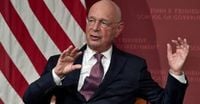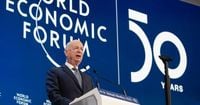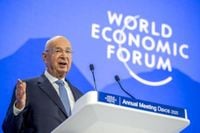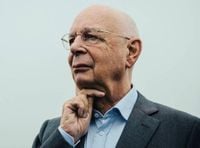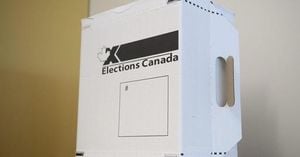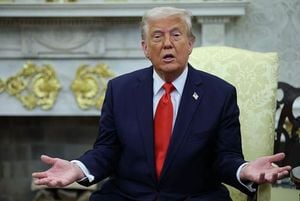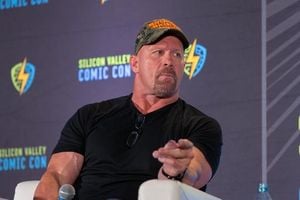Klaus Schwab, the founder and long-time president of the World Economic Forum (WEF), announced his resignation on Monday, April 21, 2025, marking a significant transition for the organization he established over five decades ago. Schwab, who turns 88 this year, stated, "After my recent announcement and as I enter my 88th year, I have decided to resign from the position of President and member of the Board of Directors, with immediate effect," in a statement released by the WEF.
The decision to step down was confirmed during an extraordinary board meeting held on Sunday, April 20, 2025. The WEF board unanimously appointed Peter Brabeck-Letmathe, the vice president and former chairman of Nestlé, as the interim president. Alongside this leadership change, a Search Committee has been established to identify a permanent successor to Schwab.
Schwab's resignation comes after a distinguished 55-year tenure, during which he transformed the WEF into a central platform for global dialogue among business leaders, politicians, and academics. The organization, founded in 1971 as a non-profit entity, has become synonymous with the annual meetings held in Davos, Switzerland, where global issues such as economic development, sustainability, and technological innovation are discussed.
In his farewell statement, the WEF board expressed gratitude for Schwab's "exceptional achievements" and his relentless leadership. They highlighted his role in creating a vital space for dialogue and collaboration among leaders from various sectors and regions. The board emphasized the importance of continuing to uphold the Forum's mission and values, particularly in a time of rapid global transformation.
As the WEF navigates this leadership transition, it faces both opportunities and challenges. The organization has been criticized for its perceived elitism and detachment from ordinary people's lives, particularly in recent years. Critics from across the political spectrum have voiced concerns about the Forum's role in promoting globalization, arguing that it often overlooks the needs and voices of everyday citizens.
Despite these criticisms, Schwab has consistently advocated for increased global cooperation to address pressing challenges. He noted in a 1996 op-ed, co-authored with Claude Smadja, that "a growing backlash against the effects of globalization, especially in industrial democracies, threatens to disrupt economic activity and social stability in many countries." This foresight has proven prescient in light of recent geopolitical tensions and economic upheavals.
Schwab's departure comes at a time when the WEF is also grappling with its internal culture. Reports have surfaced about allegations of harassment and discrimination within the organization, prompting the board to engage external legal counsel to investigate these claims. The Forum has denied these allegations, emphasizing its commitment to fostering an inclusive and respectful workplace.
As the interim president, Brabeck-Letmathe will take the helm during this critical period. He brings extensive experience from his time at Nestlé and a deep understanding of global business dynamics. His leadership will be crucial as the WEF seeks to reaffirm its relevance and effectiveness in addressing the complex issues facing the world today.
Notably, the WEF has also been affected by the ongoing geopolitical landscape, particularly following Russia's invasion of Ukraine in 2022 and the rise of protectionist policies in the United States. These developments have led some analysts to question the Forum's future role in global governance and its ability to adapt to changing circumstances.
Schwab's legacy is deeply intertwined with the evolution of the WEF itself. What began as a management symposium in Davos has grown into an influential gathering of world leaders, including heads of state, CEOs, and prominent figures from various sectors. The annual meeting has become a focal point for discussions on global priorities, attracting significant media attention and public scrutiny.
As the search for a new president begins, names such as Borge Brende, former Norwegian Minister of Foreign Affairs and current president of the WEF's Board of Directors, and Christine Lagarde, President of the European Central Bank, have emerged as potential candidates. Their leadership could shape the Forum's direction in the coming years, as it seeks to navigate the complexities of an increasingly interconnected world.
In Brazil, the Schwab Foundation, a sister organization of the WEF, continues to promote social entrepreneurship through initiatives like the Social Entrepreneur Prize, which is now in its 21st edition. This highlights Schwab's enduring influence beyond the confines of the WEF and his commitment to fostering social change.
As the World Economic Forum embarks on this new chapter without its founding figure, the organization faces the challenge of maintaining its mission while addressing the evolving needs of a diverse global community. The need for inclusive dialogue and collaborative solutions has never been more urgent, and the WEF's next leader will play a pivotal role in shaping the future of this influential platform.
